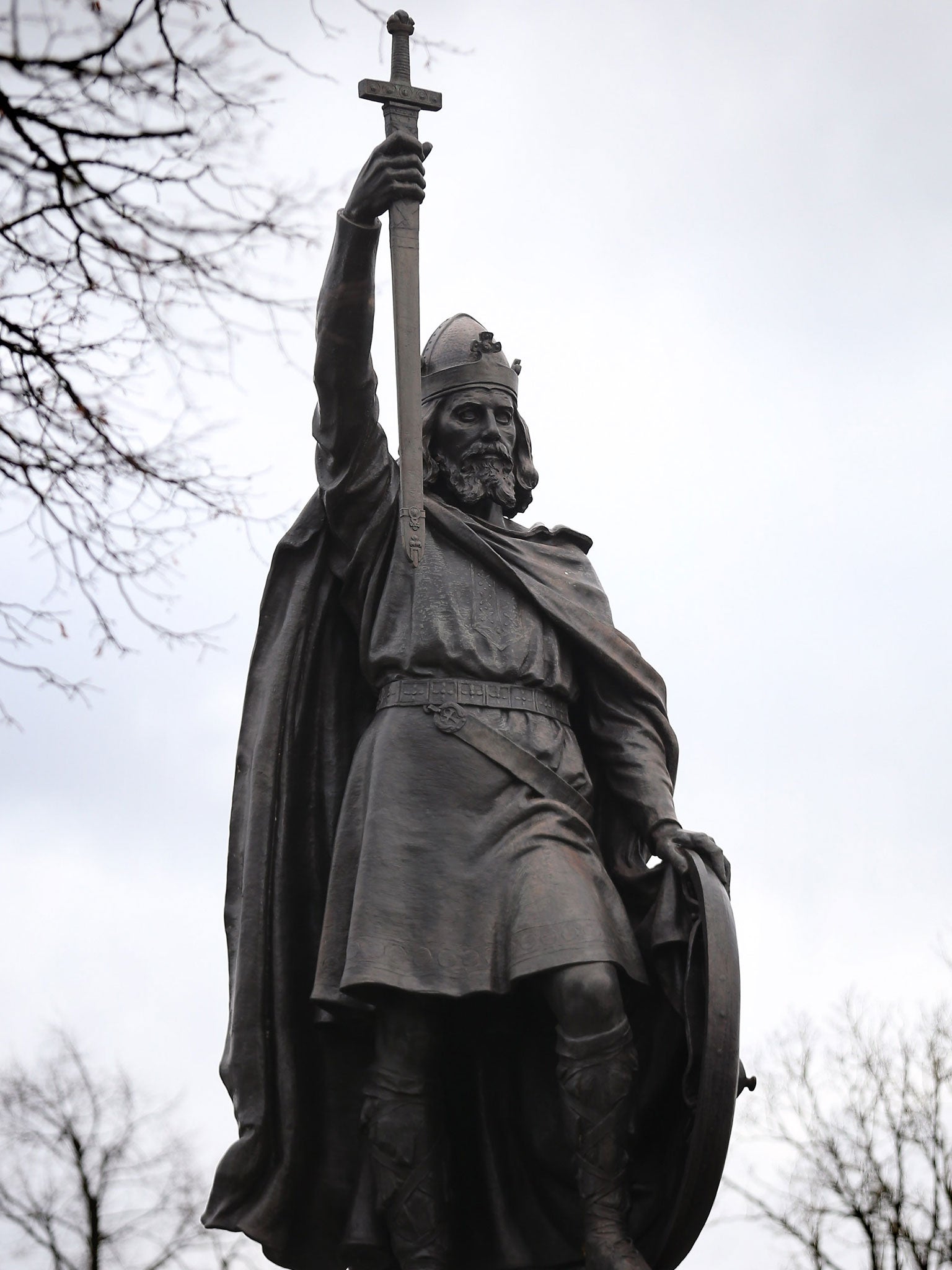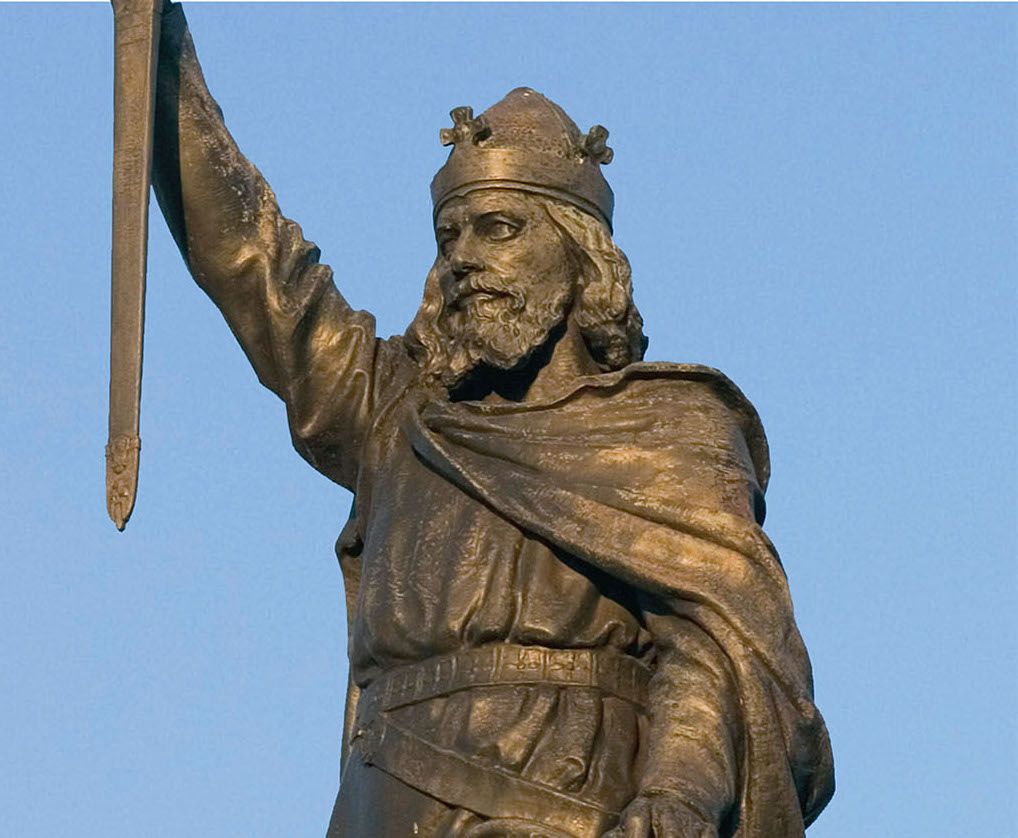

Books were very rare so there wasn’t much need for people to read. Memorising and reciting poetry was a very popular activity for the Anglo-Saxons. In Anglo-Saxon times, children were educated by memorising things.

Presenter: It doesn’t say Alfred read the book. When it was learnt, he took it back to his mother and recited it. He immediately took the book, went to his teacher and learnt it. Whereupon smiling with pleasure, she reassured him saying, ‘Yes I will.’ ‘Will you really give this book to the one who can understand it the soonest and recite it to you?’ Spurred on by these words, or rather by divine inspiration, and attracted by the beauty of the initial letter in the book, Alfred spoke as follows in reply to his mother. Narrator: One day when his mother was showing him and his brothers a book of English poetry which she held in her hand she said 'I shall give this to which one of you can learn it the fastest.' Asser tells the story of a book, given to Alfred by his mother. And because Asser wrote the biography Alfred is one of the few Anglo-Saxon children we know something about.Īccording to Asser, learning was something which fascinated Alfred even when he was very young. Presenter: That’s how the monk Asser records the birth of Alfred, the Saxon child who would lead the fight against the Vikings, promote learning throughout his kingdom he ruled and try to unite the Anglo-Saxons as one people – the English. A most religious woman, noble in character and noble by birth. Narrator: In the year of the Lord’s incarnation 849, Alfred, King of the Anglo-Saxons, was born at the royal estate of Wantage in the district known as Berkshire. Well, that was great, I greatly appreciate you joining me on this journey – oh, I think Alfred may want his crown back. Do we agree that Alfred was great? But not modest.

For which he became known as Alfred the Great. However, his defining moment of greatest was when he translated books from Latin, which only a few people could understand, into English, so more people could read them.īeginning a new age of literacy and knowledge. Over time Alfred brought the English kingdoms together and his coins call him the King of the English. So far, Alfred the not so great.īut eventually Alfred regrouped and raised an Anglo-Saxon army that defeated the Vikings at the Battle of Edington.Īlfred and Guthrum agreed to peace and to divide up the country.Īlfred kept Wessex in the southwest, Guthrum took the Viking lands in the North East, known as the Danelaw. However, he had to immediately defend his throne from Guthrum, a Viking warlord.Īlfred flees and hid in the Somerset Levels. Despite suffering from illness all his life, he outlived all his brothers and takes the throne in 871. What do we think now, great or not?Īlfred learned to read after his mother challenged her sons in recite a poem by heart from her favourite book.Įxcellent, we are on our way to greatness.
KING ALFRED PLUS
Plus meet the man himself, Alfred, born in 849 and the youngest of five brothers. This is a great-o-meter to help you keep score. Did you know that is the statue of Alfred the Great? Ever wondered why he was so great? Well, let’s start at the beginning.


 0 kommentar(er)
0 kommentar(er)
